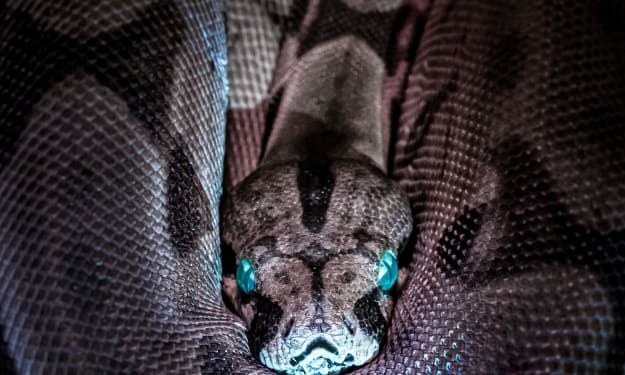Why Do People Hate Pigeons So Much?
Why Do Pigeons Make Everyone So Mad?

The history of humanity is entwined with that of some of the most powerful species on Earth. However, one graceful animal stands out from the crowd. We can only really appreciate this monarch of birds when we witness it in its natural environment. The noble pigeon is here.
Think again if you believe they are only useful for peeing on sculptures. In On the Origin of Species, Charles Darwin put forth a revolutionary idea. He wrote Chapter 1 knowing that if he was correct, this theory would upend science. You know what he used as his first illustration?
He didn't find enormous fossil armadillos, finches, tortoises, or even armadillos throughout his travels. He went with pigeons across enormous fossil armadillos. But if you think differently, you've never seen FANCY birds. He had a solid reason.
These are the birds that caught Darwin's eye because beneath all that feathered glitz, there is just one species, much as how dogs have wings instead of rats. All of the variations were modified using a single, old mold of a ferocious rock dove.
These birds were discovered on beach cliffs thousands of years before they started eating old hot dog buns out of the trash, but pretty much as soon as towns appeared, they moved because a skyscraper is merely a cliff with better architecture to a pigeon.
Pigeons are ideally adapted to city life, yet we are the only ones who have allowed them to successfully colonize every urban area on Earth. Why? It’s mostly because we enjoyed eating them ourselves.
In actuality, a pigeon's primary functions from Egypt to Rome through the early 20th century were meals, or something that affluent people nurture into absurd shapes. A handful of these domestic birds occasionally managed to elude capture and return to the "wild" over time. They simply never ventured outside of the city. However, for some reason, during that trip, our perspective on pigeons changed from one to the other.
Pigeons pecking at the pavement are not the sharpest birds in the tree; they are the ones that you should be watching. They lack crows' ability to solve riddles. They are unable to speak like parrots. The brain of a pigeon is only little larger than that fingertip. There is more to the story, though, as with most things in nature.
If they were the size of humans, their eyes would be as large as their entire skull is the size of grapefruits… These enormous eyes can see things that we can't even imagine because they have five color receptors as opposed to our three. Linus, a pigeon, was trained to retain almost a thousand photographs. Pigeons can distinguish a Monet from a Picasso and even determine whether a child's drawing is both good and negative.
Pigeons can distinguish between perfectly and incorrectly spelt words, as if they weren't already obnoxious enough. They can even arrange groupings of objects numerically, which seems simple because we're intelligent. However, pigeons are better at math than monkeys, and their vision is amazing.
Literally. B.F. Skinner, a psychologist, attempted to use these birds as weapons during World War II. He taught pigeons to nibble at a tiny screen in order to maintain an image's center. He connected this to a GPS system before packing it into a bomb. He intended to develop kamikaze pigeon-driven explosive rockets.
Using funding from the General Mills cereal corporation, he constructed numerous successful prototypes. Yes, the Cheerios makers did, but the Army never allowed it to take off.
Compared to bird bombs, pigeon navigation is much more effective. Pigeons commute, leaving in the morning to gather food and returning at night, just like /human/ city dwellers. They have a strong drive to protect their home, and because of this, we have used them as messengers for centuries—think of Flapchat instead of Snapchat.
Paul Reuter utilized pigeons to transmit news before he started a global news business. Racing pigeons were given names like Cher Ami and GI Joe during World Wars I and II actual medals for conveying information under pressure. Why are pigeons so adept at returning home from unfamiliar locations?
Pigeons can navigate using visual maps, the Earth's magnetic field, the angle of the sun, and even odors, according to various investigations. However, some birds can still locate their homes when scientists disable each of these systems in them. Pigeons employ a variety of senses, perhaps even some that we aren't yet aware of.
Despite the fact that pigeons are commonplace, you never seem to see baby pigeons. They are hideous, and they actually exist. However, it serves as a reminder that even a ubiquitous bird only provides us with peeks inside its life. Darwin's theories on natural selection emerged on a round-the-world trip. But you don't need to travel to far-off locations to be astounded by how amazing evolution is.
Darwin chose the pigeon to present his theory to the public because he was aware of this. There is wildlife wherever we are, if you know where to look: Just be cautious if you look up to be inspired. You don't say a word about it. Stay inquisitive. Because pigeons look amazing in slow motion. Birds of prey are some of the pigeons' oldest foes, and they have followed them into towns. Of course, raptors aren't the only animals that prey on pigeons in cities.
About the Creator
Althea March
I am a writer who searches for facts to create compelling nonfictional accounts about our everyday lives as human beings, and I am an avid writer involved in creating short fictional stories that help to stir the imagination for anyone.






Comments
There are no comments for this story
Be the first to respond and start the conversation.